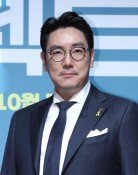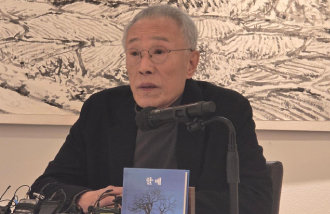President Yoon needs to revamp his leadership style
President Yoon needs to revamp his leadership style
Posted November. 09, 2022 08:09,
Updated November. 09, 2022 08:09
On November 10, President Yoon Suk-yeol will mark his six months in office. According to Gallup, President Yoon’s approval rating averaged 29 percent last week, hovering below and above 30 percent for four straight months. Although presidential approval ratings are not an absolute measure of presidential ability, the rating suggests the unpopularity of the president and his new administration that was inaugurated under the banner of fairness, prudence, and freedom.
President Yoon is hardly a prepared leader, given that he neither served as a cabinet member nor held an elective office. Many expected President Yoon to bring the winds of change to the political establishment often referred to as “Yeouido politics,” symbolized by President Yoon’s strong initiative to leave Cheong Wa Dae and nestle in Yongsan.
The president tried a different way of communicating with the public, one of which was demonstrated by doorstepping. The Yoon administration strengthened the KOR-US alliance that deteriorated under the former Moon Jae-in administration, improved Korea-Japan relations, set right the principle of private autonomy and market economy, and began reversing a nuclear power phase-out.
However, these efforts paled insignificance because of highly prosecutor-concentrated personnel appointment of key positions by the president’s close circle of friends, talks surrounding the first lady, a power struggle within the ruling party, and gossip about the president himself. On top of these problems, an even more fundamental dilemma is that the Yoon administration is unable to present a clear vision of the country’s future in the next five years, other than just being “anti-Moon,” in the face of the global economic downturn and the rapidly changing security landscape.
President Yoon can blame the National Assembly, where the opposition party holds the majority and high-ranking positions filled by those closely affiliated with the former administration. However, the situation at home and abroad is too precarious for him to play innocent. The economic downturn currently underway is more severe than the Asian financial crisis 25 years ago, and families and communities across the nation feel the impact. It is like walking through a minefield of weakening exports, trade deficits, strained capital markets, and a volatile household debt cycle. The incumbent administration should critically assess whether it is giving the public confidence that the current economic crisis can be overcome.
Facing predicament after predicament, the Yoon administration’s priority is to settle the tragedy of the crowd crush in Itaewon. The people will support the government if it distances itself from being embroiled in the political strife with the opposition party and endeavors to conduct a rigorous investigation of the cause, hold those accountable to justice, and prevent the recurrence of the same accident. In particular, those responsible for the accident must be held legally responsible and brought to take political responsibility.
President Yoon will soon face his second year in office. The Yoon administration must devise a strategy of when and how to complete the fight against corruption. It also needs to learn from the criticism that his administration is excessively filled with prosecution-oriented figures and the financial bureaucracy, contrary to the Yoon administration’s slogan of “able government.” All positions of the cabinet have been finally filled with the appointment of Minister Lee Joo-ho of Education. Still, President Yoon must consider the diversity of his personnel appointment, such as the regional background. Most important, the president must revamp his leadership style, as a stagnant leader could stifle the country’s future.




![이준석 “한동훈, 계양을 출마해야…장동혁, 머리에 용꿈 들어차”[정치를 부탁해]](https://dimg.donga.com/c/138/175/90/1/wps/NEWS/IMAGE/2025/12/10/132940178.1.jpg)


